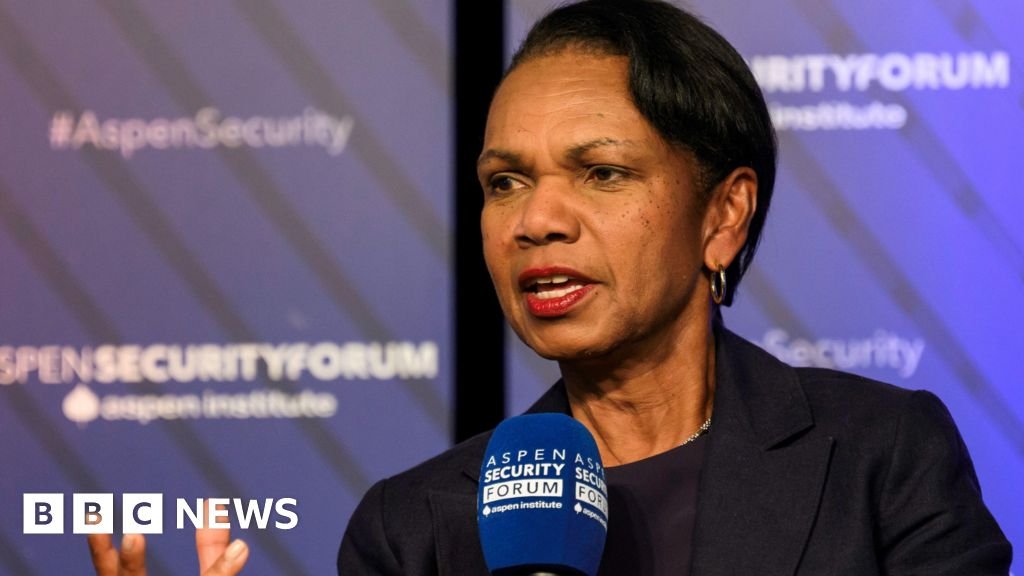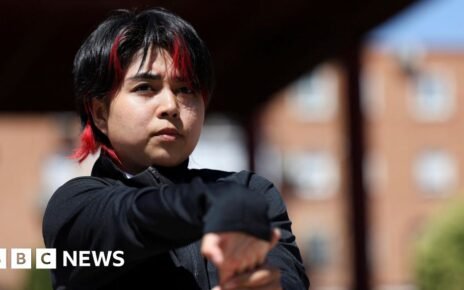By Gordon Corera, BBC News
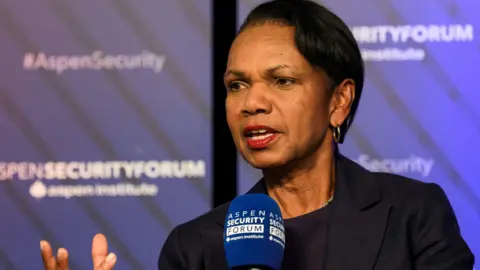 Aspen Security Forum
Aspen Security ForumAmerica’s national security community made its annual pilgrimage to the mountains of Aspen in Colorado this week for a gathering notable for a looming feeling of anxiety.
One reason is that the world is more dangerous and contested than in previous years with war in Ukraine and the Middle East as well as tensions in Asia. But the issues discussed at the Aspen Security Forum also were overshadowed by political events that may define much of what happens next.
With Donald Trump accepting the US presidential nomination during the Republican National Convention in Wisconsin and questions over whether President Biden will be forced to stand aside, there was a concern that time may be running out not just for the current administration, but for the wider approach to foreign policy, which has guided America in recent years.
Allies are looking toward November’s election with ”angst” about how much they can continue to count on American leadership, Douglas Lute, a former ambassador to NATO said at the forum.
Specifically, anxiety surrounded the question of whether America’s support for Ukraine would continue.
November’s presidential election comes at a moment when the war may be shifting so that it will less be about major gains on the battlefield and more a test of wills between Russia and Ukraine, and its allies as to who can keep going.
Trump has suggested he might push for a deal, which Ukraine and its allies fear may serve Russia’s interests more than their own. The selection of JD Vance as Trump’s running mate heightened concerns about the future of America’s commitment since Mr Vance has advocated for reducing spending on Ukraine, shifting America’s focus away from Europe, and focusing on confronting China.
British officials and ministers were absent from Aspen, but officials from other European countries stressed the importance of continued US engagement with Ukraine.
“Our house is on fire in Europe. The war in Ukraine is existential,” Jonatan Vseviov, from Estonia’s Foreign Ministry told the conference.
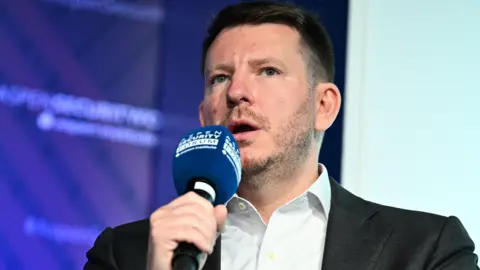 Aspen Security Forum
Aspen Security ForumWhile US military officers were wary of being drawn into politics, some sounded almost as if they were already preparing a case to make to a possible Trump administration, knowing that it likely would pressure NATO allies to increase their spending and take up a greater burden on Ukraine.
General Christopher Cavoli, America’s top general in Europe, said continued US commitment to NATO was important because European partners had changed their behaviour in recent years.
“This is a Europe that recognizes what the burden is and that it has got to be shared … this is exactly the partner that we have been looking for for three decades,” he said.
The moderator responded that they hoped someone was livestreaming his answer to the Republican convention.
There was recognition that the Republican Party’s foreign policy shift away from a more internationalist perspective went deeper than just Donald Trump.
One reason discussed at the meeting, was that the international order America built through globalisation and free trade did not always deliver benefits for American workers. That sparked domestic backlash, undermining support for continued engagement, not just in Ukraine, but more broadly.
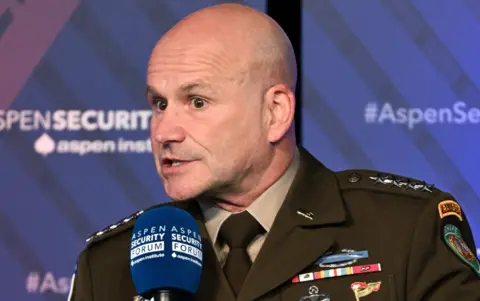 Aspen Security Forum
Aspen Security ForumCalls to reduce funding for Ukraine and act more unilaterally have been growing within the Republican Party.
Former Republican Secretary of State and National Security Adviser Condoleezza Rice said she was’ concerned’.
She made the case that, for the US, standing firm in Ukraine would send an important message to China.
“I understand that a lot of people want to focus now just on China, but ….we have to keep driving home that credibility is not divisible. So what you do in Ukraine is actually going to matter to (China’s leader) Xi Jinping,” she said.
That view was echoed by General CQ Brown, chairman of the Joint Chiefs of Staff of the US military.
“We have credibility at stake,” he said. “Ukraine matters. Unprovoked aggression in one part of the world does not stay in one part of the world.”
But Ms Rice said she also recognised that American public opinion had changed and some previous commitments were unsustainable.
“We have to realize that some of these engagements are going to be hard to sustain over a long period of time. I don’t know if any American president …. can sustain 60 billion (dollar) packages to Ukraine every six months,” she said.
National Security Adviser Jake Sullivan closed the forum stressing that the Biden administration has put considerable effort into building alliances in Europe and Asia.
The reservoir of support for Ukraine in Congress and among the public was strong enough to survive any political headwinds, he said. Mr Sullivan also pointed out that international commitments had been secured for Ukraine to sustain support in the long term.
“It’s a very good feeling,” Mr Sullivan joked when asked if it was good to be out of Washington, even as journalists pressed him on President Biden’s ability to go on for another four years in office.
The Aspen foreign policy elite can feel like a bubble but in the fresh mountain air there was a sense that foreign affairs was not going to be immune from change. And whatever the result of November’s election, with a more dangerous world, the path ahead looked uncertain.

